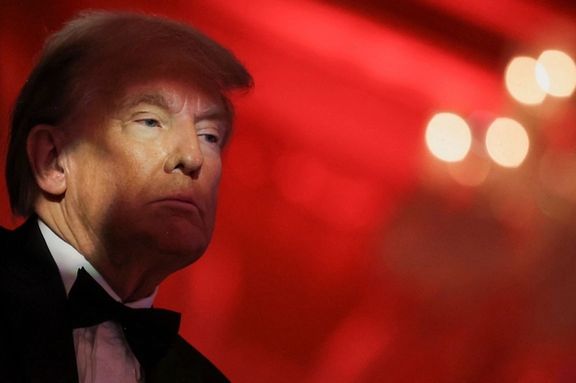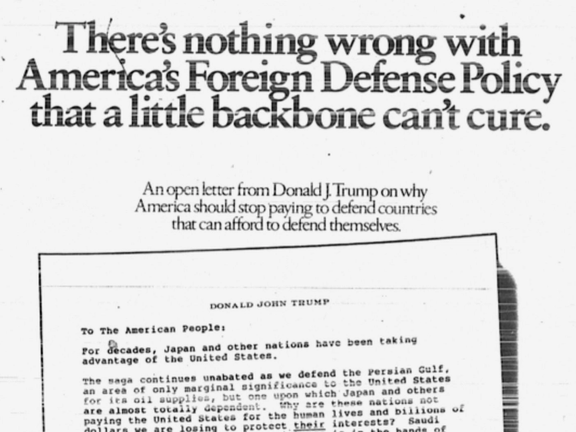Will Trump square a security strategy that Biden could not?

US president-elect Donald Trump is gearing up for his second term, pursuing a national security doctrine rooted in principles forged during his first term: a blend of pragmatism and resolute America First ideology.
A taster of the blend was presented by Trump’s nominee for National Security Adviser, Mike Waltz, in his interview with CNBC on November 26 2024, where he said the Middle East is key to resolving the Russia-Ukraine conflict.
Waltz contends that Trump will mobilise all resources to dismantle Iran’s destabilising hegemony, emboldened under Biden’s administration. This aligns with Trump’s broader strategy to untangle the global crises bogging down American power.
To achieve this, Waltz suggests leveraging Russia’s influence over Iran’s IRGC praetorian guard to advance lasting peace in the Middle East, a vision epitomised by the Abraham Accords. This necessitates a face-saving resolution to the Russo-Ukrainian War, safeguarding American interests in Europe while enabling détente with Russia. Waltz confirms collaboration between the Biden and Trump teams to address these crises—as suggested by the author a few weeks back.
Trump's November Days: a pivotal moment in American history?
The span of 5–26 November 2024—Trump’s November Days— can be compared to the critical days of the Cuban Missile Crisis in 1962. Though the world public opinion may not be apprised of the threat the outbreak of a world war, Trump seems to be convinced, and he has so exclaimed several times, if left uncontained both the conflict in the Middle East and the Russo-Ukraine War could lead to World War III.
Putin’s Russia just tested a “conventional” multi-warhead missile, Oreshnik, against Ukraine. Not only has lowered the threshold of Russia’s nuclear doctrine but he has also threatened to use Oreshnik against Kiev.
These weeks reflect a reckoning for America’s allies and adversaries. Through calls with the leaders of Israel, Ukraine and Russia, president-elect Trump signals a readiness to address global crises with bold leadership. Equipped with intelligence uncovering Iranian plots against his life, Trump could cite Iran’s machinations in his talks with the Russian president Vladimir Putin, who has been Tehran’s biggest ally in recent years.
Trump appears to be steadfast in his conviction that the delicate bifurcation of a proactive strategy—one that seeks to neutralise Iran’s regional by co-opting Putin—can be achieved only through a blend of transactional acumen and the unyielding application of military strength. Put simply, to Trump, providing Putin with a dignified exit from his Ukrainian quagmire may well furnish the United States with a potent “Russian leverage” to counter Tehran’s ambitions with the greatest efficacy.
Trump’s National Security Strategy
Trump is, above all, guided by the America First ideology. This conviction was first vividly displayed in his interview with CNN’s Larry King on September 2, 1987, a day after the publication of his now-famous advertisement condemning America’s foreign defence policies as profligate and misguided.
At that moment, Trump offered a glimpse into his vision of America’s place among its allies—particularly the oil-rich monarchies of the Persian Gulf and Japan—and its adversaries, laying bare his disdain for arrangements he deemed unequal and detrimental to the American taxpayer. His first term cemented this doctrine, articulated in his 2017 National Security Strategy as "peace through strength."

Trump’s approach—transactional, unpredictable, and grounded in interpersonal chemistry—relies on the judicious use of economic sanctions, military power, and alliances. His approach to Iran showcased his strategy: withdrawing from the 2015 nuclear deal to counter Iran’s ambitions, imposing tough sanctions to curb its regional activities, and authorising the elimination of IRGC top commander Qassem Soleimani following attacks on US forces.
His pragmatism also allowed reluctant alignment with Iran against ISIS, contrasting with Obama’s reliance on the nuclear deal. Through the Abraham Accords between Israel and Arab monarchies, Trump fostered a regional alignment against Iran. In stark contrast, Joe Biden’s de-escalation policy emboldened adversaries, culminating in Hamas’s October 2023 attack on Israel and the collapse of Saudi-Israeli negotiations.
Nominees as emissaries and instruments of strategy
Trump regards loyalty not as blind fealty but as the bedrock of an effective administration, especially in what he perceives to be one of the most critical junctures in American history. His nominees reflect this concern, embodying a calculated alignment of expertise and allegiance to his vision.
Beginning with Mike Waltz as National Security Adviser, Trump has assembled a cadre of officials poised to execute his agenda with precision. Among his appointees is Keith Kellogg, a highly decorated retired general and former advisor to Vice President Pence, who will serve as Trump’s special envoy for Ukraine and Russia. Kellogg’s extensive military experience positions him as Trump’s most trusted ambassador plenipotentiary, tasked with navigating delicate negotiations at the intersection of European and Middle Eastern crises.
The suite of nominees also includes Senator Marco Rubio as Secretary of State, Congresswoman Elise Stefanik as Ambassador to the United Nations, and John Ratcliffe as CIA Director. The trio of Waltz, Rubio and Stefanik share Trump’s vision for containing Iran, including Tehran’s influence network in DC, and securing regional stability, demonstrated through their congressional leadership.
Ratcliffe’s prior tenure as Director of National Intelligence further equips him to advance Trump’s agenda with strategic insight. Tulsi Gabbard's nomination as Director of National Intelligence is a bold but contentious choice, reflecting Trump’s embrace of unconventional diplomacy—and perhaps a green light to Putin. Complementing her are Mike Huckabee, named Ambassador to Israel, and Steven Witkoff, special envoy for the Middle East, both exemplifying Trump’s transactional and results-driven strategy.
The Road Ahead
Trump’s return takes shape amidst unyielding crises: the Russo-Ukrainian War rages in Europe, while tensions between Israel and Iran threaten to ignite the Middle East. This world, far more intricate than the one he left in 2020, demands sharp strategy and steadfast resolve.
In these November Days, Trump has been gathering a team that he hopes can achieve what the Biden administration could not: to square the national security circle between the Middle Eastern maelstrom and the stalemated Russo-Ukrainian conflict. Guided by America First and peace through strength, his loyal and expert nominees offer him an opportunity to steer the world from chaos toward a semblance of stability and peace.